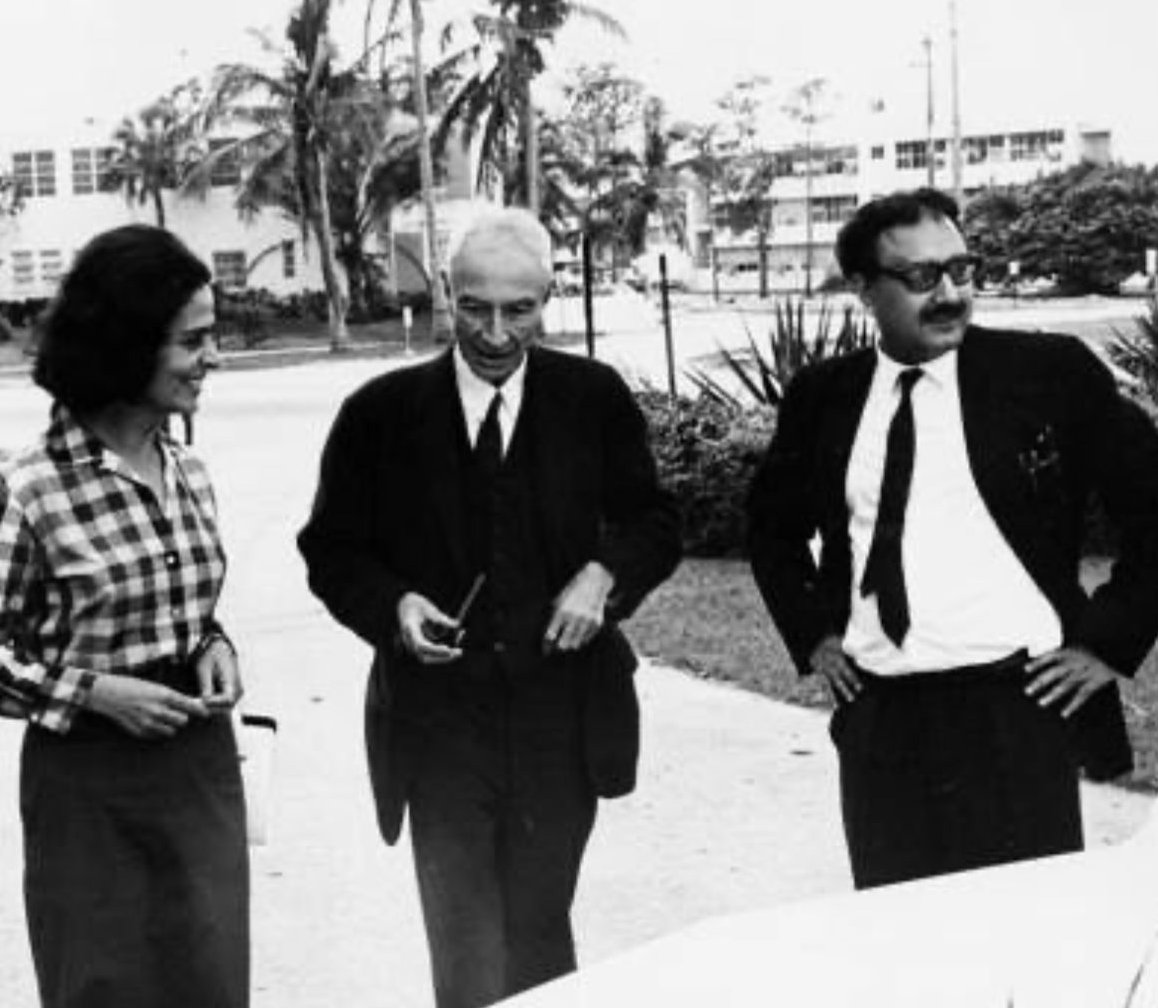Robert Oppenheimer This week, a film has been released worldwide that is based on the life of renowned scientist Robert Oppenheimer.
Oppenheimer was an expert in quantum physics and played a crucial role in discovering the fundamental principles of quantum physics in the last century. He particularly helped in understanding the properties of neutrons.
Robert Oppenheimer became famous for his significant contributions to the field of quantum physics, particularly for his work on discovering the fundamental principles and properties of neutrons.
His leadership as the head of the atomic bomb development project during World War II also brought him widespread recognition.
When America started working on the project to develop atomic bombs, Oppenheimer was appointed as the head of the project.
Despite playing a key role in developing atomic weapons, he remained very active in controlling the use of nuclear weapons.
Physics and Pakistan
Dr. Abdul Salam proposed the establishment of the International Centre for Theoretical Physics in 1960. Acting on his proposal, this institution was established in Italy in 1964 for research in advanced physics.
Dr. Abdul Salam wanted to establish this institution in Pakistan, but due to the cold response and mockery of the Pakistani authorities, he became disappointed and abandoned his intention, and the institute was established in Italy.
Dr. Salam was appointed as the first director of this institute. In the same year, he held the first scientific council meeting at this institute, which was chaired by Oppenheimer.
You can see Dr. Abdul Salam and Oppenheimer in these pictures.
It is known that Oppenheimer had mixed feelings about his involvement in the development of the atomic bomb.
While he played a crucial role in the project and was proud of the scientific achievements, he also expressed regret and concern over the use of nuclear weapons and their devastating consequences.
Despite his regrets, Oppenheimer remained actively engaged in efforts to control and limit the use of nuclear weapons after the war.
Ans: J. Robert Oppenheimer, full name Julius Robert Oppenheimer, was an American theoretical physicist and one of the leading scientists behind the development of the atomic bomb during World War II. He is often referred to as the "father of the atomic bomb.
Q2: What is Oppenheimer's most famous contribution?
Ans: Oppenheimer is most famous for his role as the scientific director of the Manhattan Project, which led to the development of the first atomic bomb. His leadership and contributions were crucial in bringing together scientists, engineers, and resources to create this powerful weapon.
Q3: When and where was Oppenheimer born?
Ans: Oppenheimer was born on April 22, 1904, in New York City, USA.
Q4: What was Oppenheimer's educational background?
Ans: Oppenheimer attended Harvard University, where he studied a wide range of subjects, from chemistry to literature. He later pursued his graduate studies at the University of Göttingen in Germany and received his doctorate in theoretical physics.
Q5: What is the significance of Oppenheimer's quote "I am become Death, the destroyer of worlds"?
Ans: This quote is from the Bhagavad Gita, and Oppenheimer famously recited it upon witnessing the first successful test of the atomic bomb in 1945. The quote reflects his mixed feelings of awe and dread about the destructive power of the weapon he helped create.
Q6: Was Oppenheimer solely focused on military applications of science?
A6: No, Oppenheimer had a broader interest in science and its applications beyond warfare. He made significant contributions to various areas of theoretical physics, including quantum mechanics and astrophysics.
Q7: Did Oppenheimer face any controversies during his career?
Ans: Yes, Oppenheimer's involvement with the Manhattan Project and his subsequent political activities led to his being investigated by the U.S. government during the Cold War. He faced accusations of being sympathetic to communist causes, which ultimately led to the revocation of his security clearance.
Q8: What happened to Oppenheimer after World War II?
Ans: After the war, Oppenheimer became an influential figure in the field of theoretical physics and was appointed as the director of the Institute for Advanced Study at Princeton. He continued his research and contributed to various academic endeavors.
Q9: When did Oppenheimer pass away?
Ans: J. Robert Oppenheimer passed away on February 18, 1967, in Princeton, New Jersey, USA.
Q10: What is Oppenheimer's legacy?
Ans: Oppenheimer's legacy is complex and multifaceted. While he played a pivotal role in advancing science and technology during wartime, his later years were marked by controversies. He remains an important figure in the history of physics and a symbol of the ethical dilemmas posed by scientific discoveries with far-reaching consequences.


